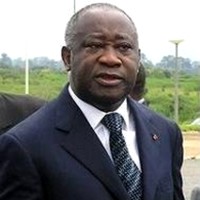ABIDJAN, Côte d’Ivoire -- Last week, five suspects appeared at Abidjan’s Palace of Justice for the opening of the first trial related to Côte d’Ivoire’s recent bout of postelection violence. The conflict, which began after former President Laurent Gbagbo refused to step down despite losing the November 2010 election to current President Alassane Ouattara, claimed at least 3,000 lives and displaced hundreds of thousands. Eighteen months after the power struggle ended with Gbagbo’s arrest in April 2011, persistent political divisions have largely thwarted efforts at national reconciliation.
The beginning of the justice process is seen as a potential catalyst for progress. However, as Côte d’Ivoire tries to move on from the violence, it faces a choice between balanced justice, by which all those responsible will be held accountable for their roles in the conflict, and a form of victor’s justice, with its attendant impunity for those on the winning side.
So far, balanced justice has been elusive. Though Ouattara’s government has accepted the jurisdiction of the International Criminal Court, only Gbagbo has been transferred to The Hague, making him the first former head of state to be taken into the court’s custody. Meanwhile, the scales of domestic justice have been blatantly one-sided. A commission of inquiry reported in August that fighters from both sides were responsible for hundreds of killings, confirming what had already been documented by the U.N., rights groups and journalists. Nevertheless, not a single Ouattara supporter has been detained for postelection crimes, compared to the more than 100 Gbagbo loyalists awaiting trial throughout the country.

